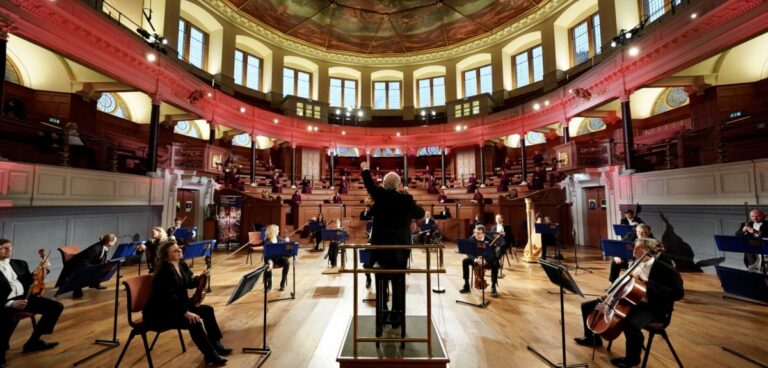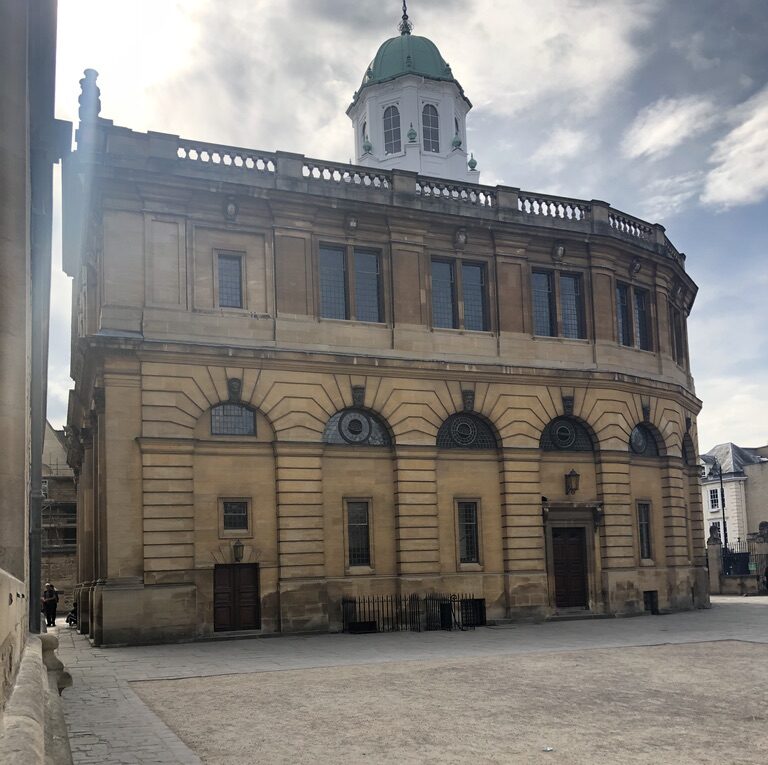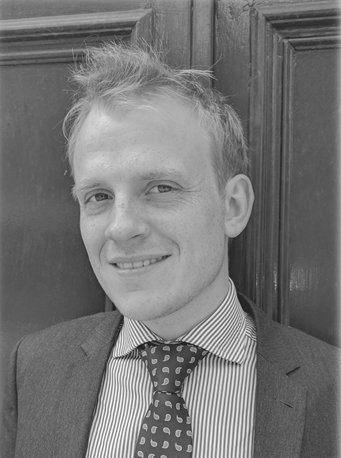Starting a new fundraising job at an arts organisation during the pandemic

By April 2020, the world had come to a screeching halt. For James Dyer, CFRE, that was his first month on the job as a Development Executive at Oxford Philharmonic Orchestra (OPO). If starting a new job isn’t already equal parts thrilling and daunting, layer in a global pandemic with a pinch of lockdown and a heaping spoonful of uncertainty to make the situation even more fraught.
With the orchestra’s concerts cancelled and donors experiencing upheaval in their own lives, James had his work cut out for him to help keep donations on track. Ashley Gatewood, MA, interviewed James earlier this summer to discover how he and his team pivoted while navigating the unknown.
Advertisement
Ashley: Can you walk us through what the atmosphere was like at the OPO’s development office in April of last year?
-
James Dyer
James: The overall feeling was one of confusion. The orchestra had built a very successful annual fundraising plan that centered around concert sponsorship and various prestigious events (including an annual concert and dinner at Buckingham Palace).
The pandemic knocked out more than £650,000, which is a third of our regular income, overnight. A complete rethink was needed to pivot our activity online and unlock new income streams. As a fresh pair of eyes in the organisation, I quickly got to work bringing together the Music Director, Trustees and other members of the Development Office to think about ways in which we could still reach our audience, give work to our players and secure funding in different ways.
It was an exciting time but also one full of uncertainty. Looking back, I’m thrilled we managed it.
Ashley: Of the various challenges facing your team at the time, which seemed the most pressing and how did you meet it head on?
James: Our focus for our team, and for the whole orchestra at this early stage and throughout the pandemic, was to give our freelance musicians work. The orchestra has more than 150 professional musicians, all of which are freelance and only paid for the engagements they perform.
The arts industry was hit harder than most by the pandemic, so we felt a duty of care to our players and wanted to do all we could to give them work at a time when playing together wasn’t possible. We quickly devised a number of ‘meet the players’ online events for our patrons together with a series of educational YouTube videos (entitled “Oxford Philharmonic at Home”) for our younger audience, giving our players freedom to be creative and perform from their homes.
Our existing family of donors were receptive of these initiatives and to the needs of our players and gave generously at an early stage to the ‘Orchestra Relief Fund’ which made this activity possible.
Ashley: What kind of conversations have you been having with donors throughout the pandemic?
James: Donors have been asking one thing – when can we return to the Sheldonian to hear the orchestra once again? The Sheldonian is the home of the orchestra – a 17th century theatre in the heart of Oxford designed, alongside St Paul’s Cathedral, by Christopher Wren.

The pathway in and out of various lockdowns has made that question very difficult to answer, not least because Oxford University (who own and run the theatre) have layered their own lockdown restrictions and social distancing regulations on top of those made by the government.
In December 2020, we were able to bring our audience back, albeit virtually, with a live streaming performance conducted by Sir John Rutter, dedicated to the Oxford AstraZeneca Vaccine Team. This was the first time the orchestra had played together for more than nine months. It was an opportunity to engage with donors and sponsors and share with them the work we had been doing whilst performances weren’t possible.
Ashley: What were the main themes donors expressed during those conversations and what did you do with that information?
James: Donors were concerned. They missed performances and were worried about whether the orchestra could weather the storm of the pandemic.
In late 2020 and again in early 2021, we submitted two successful bids to the UK’s Culture Recovery Fund, which gave us financial stability to schedule further performances, digital and in-person, in 2021.
Donors were more reassured of our base level financial security after this news was shared. This enabled us to nurture additional support from new and existing donors. We ran a highly targeted direct mail campaign in late 2020 both to raise additional general funds, but also to learn more about our donor pipelines. Keeping donors at all levels engaged gave both sides confidence that live performances would return as soon as possible.
Ashley: What were the primary ways your team adapted their fundraising strategy and do you think you’ll carry on with any of those approaches post-pandemic?
James: Pre-pandemic, the orchestra definitely had an over-reliance on prestigious fundraising events and concert sponsorship. With both these income streams dry, a big overhaul of the fundraising strategy was needed.
We shifted focus to look in greater detail at grant making organisations. The tough competition for these grants forced us to consider the outcomes, impact and reach of our work in a more strategic way. There was a step-shift in the way that fundraising was no longer just the job of the Development Office – with all staff and lots of volunteers taking some ownership of income generation.
The orchestra had never received public funding from Arts Council, England, but thinking in this more strategic way, particularly how we would connect with harder-to-reach communities, led to two successful bids that secured more than 50 percent income shortfall.
Ashley: The OPO held the Oxford Piano Festival this summer. How has your development office been involved with this event and what kind of appetite are you finding your audience has for returning to in-person events?
James: The Piano Festival at the end of July was the first big opportunity for us to test what we had learnt about working in new ways following the relaxation of most lockdown restrictions in the UK on 23rd July.
The festival has always attracted a different audience from the orchestra’s main concert season, with lots of our audience travelling from overseas to stay in Oxford throughout the week. As international travel was still going to be different, we made sure that lots of our concerts, masterclasses and other events, were streamed online so that our international family of supporters could still be a part of the Festival.
The Development Office brief was relatively light throughout the week, with a primary focus on gathering quantitative and qualitive data from in-person and online audiences that would enable us to better demonstrate the reach and impact of the festival to funders in future.
We also planned dinners and hospitality for a number of HNW donors throughout the week at which they could meet performers and participating students.
Immediately after the Festival, we are planning another targeted direct mail campaign to gain better understanding of attendees not currently giving.
Ashley: In the last 17 months you’ve professionally navigated some tricky terrain. What type of professional development and training have you done in the course of your career that helped arm you with the knowledge to meet the pandemic’s fundraising challenges head-on?
James: With everyone pivoting online in the last 17 months, personal development opportunities have been more accessible than ever. I’ve learnt more about how difficult conversations about equality, diversity and inclusion is so important in the performing arts. The orchestra’s audience is dominated by affluent white people and little had been done to address this inequality. We were forced to ask difficult questions and pledge to improve diversity in all aspects of our work.
With no in-person access to donors, I have also wanted to understand more about the ways donors think. I undertook training in behavioral economics for fundraising. This helped me approach much of my work from the perspective of the orchestra meeting the needs of the donor, rather than the donor meeting the needs of the orchestra. I now see myself as a conduit between the giver and the beneficiary, working to support the giver in realizing their philanthropic goals.
I earned my Certified Fund Raising Executive (CFRE) certification in early 2020. It’s the only accredited, globally-recognised certification for fundraising professionals. Going through the study required for the CFRE meant I had brushed up on various facets of fundraising just before the pandemic. That studying process and what I learned during it helped me feel more confident to take on the uncertainty of fundraising during a global catastrophe.
Ashley: What is in store for the OPO’s fundraising and what are you most excited for?
James: The orchestra has exciting times ahead and looks forward to welcoming their existing family of donors and other concert-goers back to a full season of performances from October 2021. Alongside one of the world’s greatest violinists, Maxim Vengerov, they have a really exciting debut at Carnegie Hall in October 2022 planned.
On the other hand, I’m heading off in a new direction and will be starting work as a Fundraising Consultant for the National Trust from October 2021. I’ve always wanted to combine my skills and passion with a fundraising job in Heritage. For those of you who don’t know, The National Trust looks after some of the UK’s most precious places of historic interest and natural beauty for everyone to learn from and enjoy. More info can be found at www.nationaltrust.org.uk.
Ashley: Thank you so much for sharing what it was like to start a new job at an arts organisation one month into the pandemic. I wish you great success for your future fundraising.




